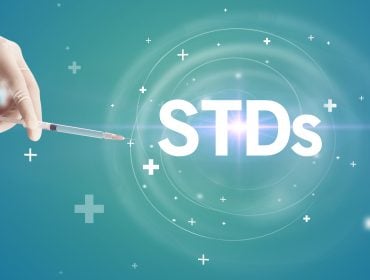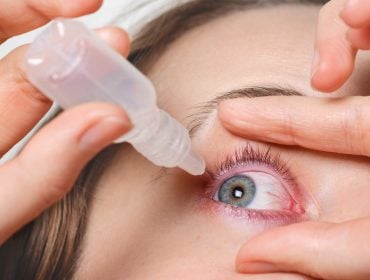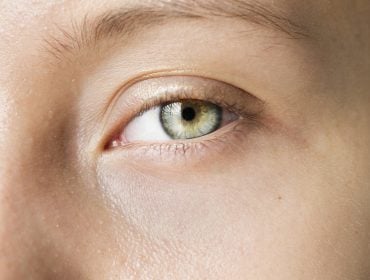Eliminate These Trigger Foods for Managing Herpes Outbreaks: A Holistic Approach
If you have herpes, watching what you eat can help a lot. Some foods make it worse, so it’s best to stay away from them. Think of this as taking steps to feel better and keep your body strong. Knowing the right foods to avoid helps in managing outbreaks more smoothly. This way, you care for both your health and happiness without adding worry or stress about what’s on your plate.
Understanding Herpes and Diet Connections
When dealing with herpes, what you eat matters. Some foods might trigger outbreaks more than others. For example, too much arginine-rich food like nuts and chocolate can make things worse.
These items tip the balance away from lysine, an amino acid that helps control your symptoms. On the flip side, adding more lysine through dairy or fish could help keep outbreaks in check. It’s not just about avoidance; it’s a strategic choice towards foods that support your well-being while managing herpes. Remembering to cut back on certain items and favor others is key in keeping symptom flare-ups at bay.
Trigger Foods to Avoid for Herpes
When managing herpes, avoid certain trigger foods that can cause outbreaks. Foods high in the amino acid arginine help the virus thrive. Thus, reducing these helps manage symptoms better.
Aim for a diet higher in lysine; this blocks arginine effects and slows the growth of the herpes virus. Key to note: Foods like nuts, seeds, and chocolate are high in arginine; limit them. Instead lean into lysine-rich options such as yogurt or salmon for their outbreak-preventing qualities without risking health issues. Remember though, diet alone won’t stop outbreaks fully. A strong immune system is crucial too! Stress less sleep well eat balanced meals focus on overall wellness to keep your body’s defenses up against herpes effectively.
Holistic Dietary Strategies Against Outbreaks
When dealing with herpes outbreaks, what you eat matters deeply. Foods high in arginine can trigger episodes. Avoid foods with high amounts of arginine like:
- Seeds (especially pumpkin seeds)
- Chocolate
- Nuts
- Whole grains
It’s wise to lower your intake of foods that contain a high amount of arginine during an outbreak for less severe symptoms. Focus on foods high in lysine like:
- Fish
- Shellfish
- Chicken
- Red meat
- Cheeses like parmesan
Herpes lives within neurons forever once infection occurs. Iwasaki’s research at Yale University focused mainly on understanding immune defense mechanisms against such viruses through advanced investigations. In crafting a diet that aids your body during these outbreaks focusing on balance rather than strict avoidance might yield better comfort levels and fewer disruptions caused by this lifelong companion virus.
Nutritional Tips for Managing Herpes
Feelings of guilt at diagnosis are normal but unnecessary. Managing the virus focuses on symptom care for less pain. Prescription antivirals treat outbreaks, itching or burning in genitals, but pair with stress management for effectiveness.
Stress spikes cortisol, boosting inflammation and distracting your immune system from fighting the virus effectively. For additional relief, try FemiClear alongside prescriptions to combat outbreak discomforts like itching or burning sensations, showing over 90% user satisfaction in easing such symptoms through its natural ingredients approach.
Beneficial Alternatives in Your Diet
To help your body fight herpes outbreaks, consider changing what you eat. Foods rich in antioxidants might lower the chance of an outbreak by supporting your immune system. This means eating more green veggies like spinach and kale, along with tomatoes and cauliflower, which have fewer ingredients that feed the virus.
Omega-3 fats are also key; they strengthen our bodies against chronic inflammation linked to outbreaks. You can find these healthy fats in certain fish or seeds. Don’t forget about vitamin C-rich fruits such as oranges or bell peppers for added defense aid.
Zinc is another helper, found in eggs and oats; it may stretch out time between flare-ups. Lastly, B12 supports cell healing during an outbreak so include foods like beef or chickpeas high on this nutrient in your meals for better control over herpes reactions.
Lifestyle Changes Supporting Dietary Efforts
To boost your diet plan, adjust life habits too. Sleep well; aim for 7-8 hours each night. Stress less, as worry can hurt health goals. Drink water over soda or juice to cut sugar intake. Exercise daily; even a walk helps burn calories and lifts mood. Choose fresh food when possible, avoiding processed items with high fat or salt content. Remember: Real change comes from both what you eat and how you live day by day.
Some foods can set off outbreaks, making things tough for you. By cutting out these trigger items and picking healthier options instead, you help keep symptoms in check. Think of it as giving your body the backup it needs to fight back better against herpes flare-ups, all while staying informed with reliable sources like STDCheck for healthy choices and accurate testing.
Medically Reviewed by Julie Hutchinson, MD on April 9, 2024
Secure and Confidential
STD testing services
The fastest results possbile - available in 1 to 2 days

Tagged
Categorized As
Author: STD Check Editorial Team
At STDCheck.com, we go to great lengths to ensure quality content. We’re using our own collection of data. It is not bought or made up for “click-bait” purposes. We don’t entice traffic with cheesy graphics or raunchy headlines. Our information is to promote STD testing, educate people, let go of social stigmas, and bring awareness. We also provide a completely confidential atmosphere through private testing. When we produce an article, it is fact-based. We check it with medical advisors that approve it. Our staff consists of doctors and other medical professionals who peer review the content we make available on STDCheck.com. From all over the world, we have sourced the best and the brightest content developers, including medical professionals, marketing engineers, data scientists, content specialists, and media relations.




